How to Draw a Dodge Charger
A bit earlier, the team of DrawCarz demonstrated how to draw a Dodge Challenger, and now continuing this topic we will show you how to draw a Dodge Charger, another cool car from the popular US brand.
In this tutorial, we’ll be presenting a four-door Dodge Charger of one of the previous generations. By adjusting the shapes and modifying certain parts, you can also illustrate a two-door version if you’d like.
We’ll explain how to do this and how to recreate the generation or body style you need at the very end of the tutorial.
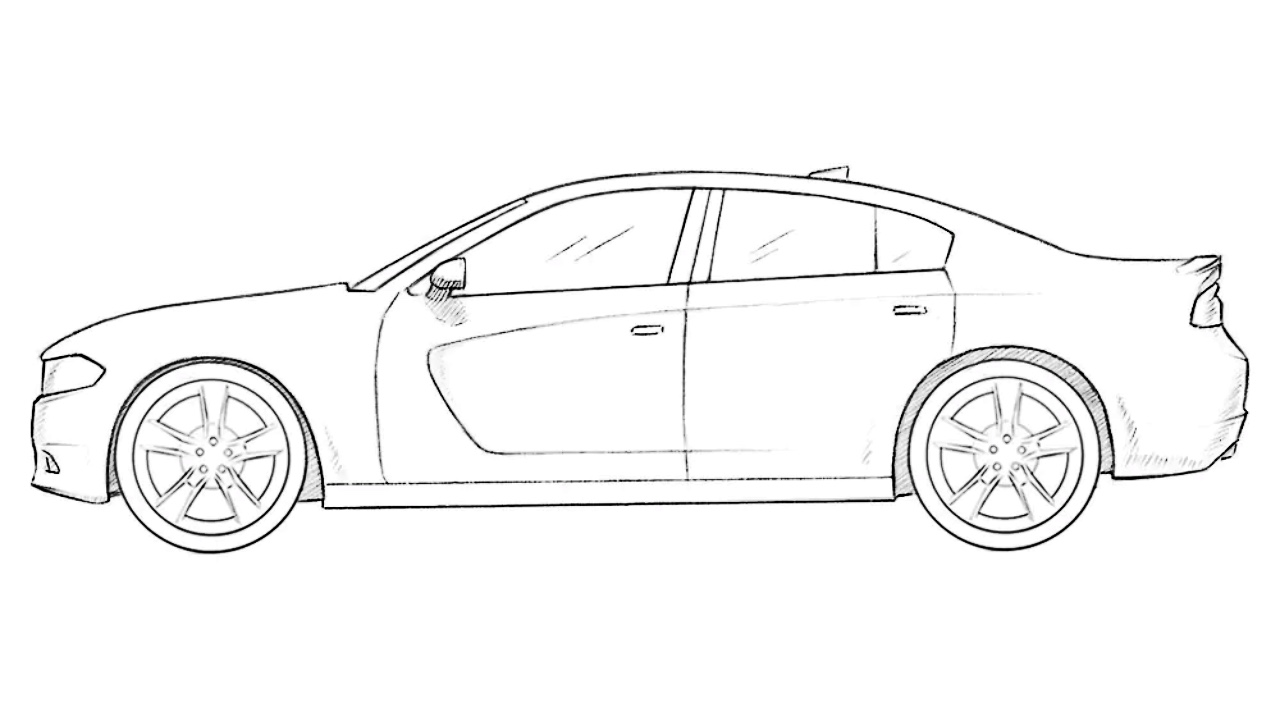
How to draw a Dodge Charger: step-by-step tutorial
Step 1 – Sketch the long muscle-car silhouette
Mark a loose framework to represent the Charger’s basic shape. Use a long horizontal block for the body mass and a sweeping arc for the roof. Older muscle-car silhouettes look more squared and heavy, while later generations appear more streamlined.
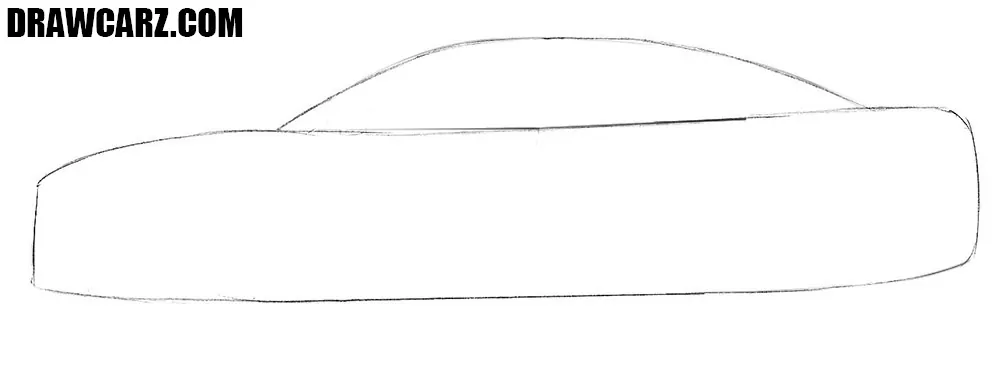
Step 2 – Outline the basic wheel and window shapes
Draw two circles for the tires of the Dodge Charger. Add rough shapes for the headlight and rear lamp. Sketch a smooth guideline for the window beltline, which can be higher in modern versions or lower in vintage models.
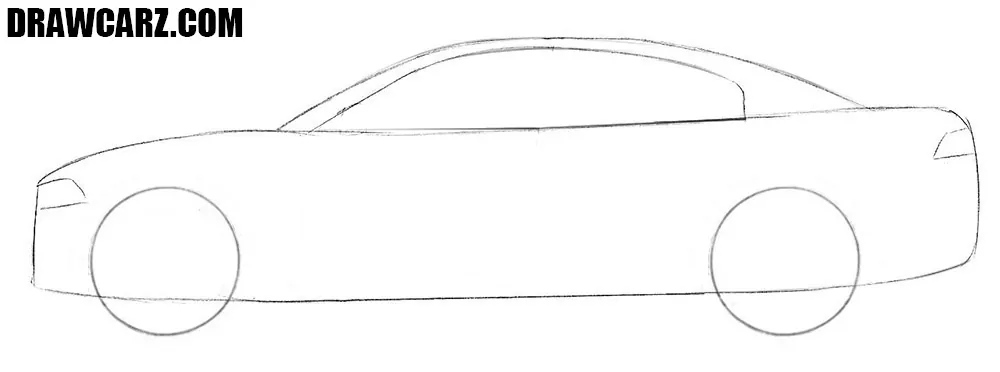
Step 3 – Include the Dodge Charger doors and rims
Frame the wheels with arches and place smaller circles inside for rims. Add simple lines for the doors. Here you can try to specify either a coupe version by marking one door on this side of the car body, or stick to our option and mark two doors.
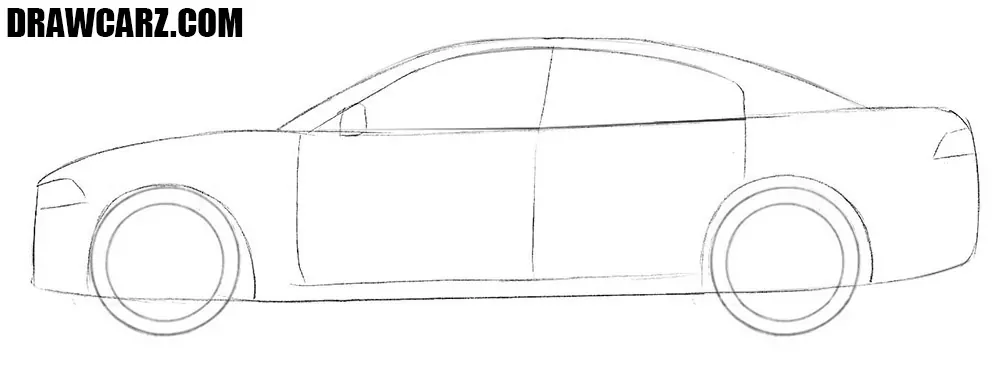
Step 4 – Define the american car nose and lamps
Work on the nose with stronger contour lines. Redraw the front edge and bumper, making them darker and smoother. You can adjust the shape of the bumper for a different version. Cleaning up construction lines here makes the Charger drawing start to look like a finished automotive rendering.
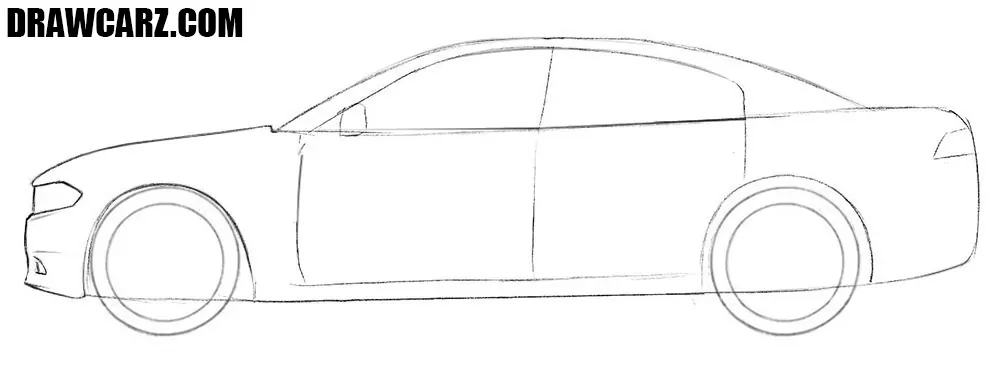
Step 5 – Draw the Dodge Charger windows
Trace the roof of the muscle car with smooth strokes and refine the windshield and side windows. Removing construction lines here clarifies the car body type. Trace the mirror and erase the guidelines. Also, you can add some intricate details, as an antenna.
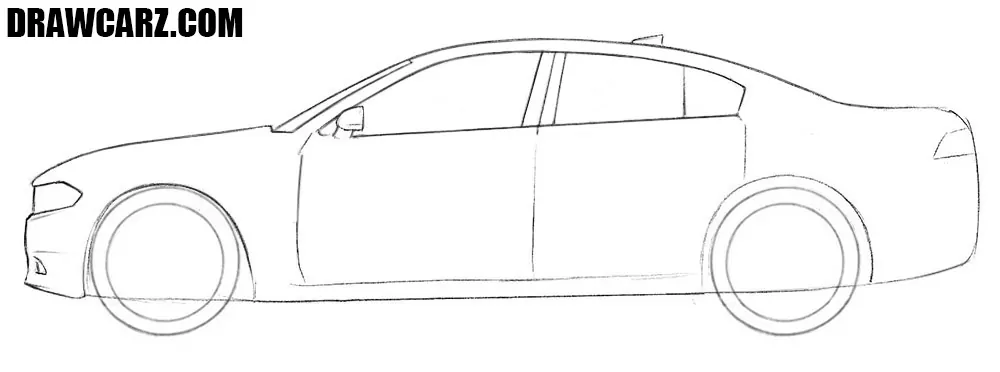
Step 6 – Complete the trunk, taillight, and spoiler
Extend the roofline into the trunk lid, giving it curves and correct edges. Draw in detail the rear light of the Charger. Indicate the trunk cutout and add the small spoiler above it. Sketch an exhaust pipe beneath the bumper. This step completes the back volume of the muscle car.
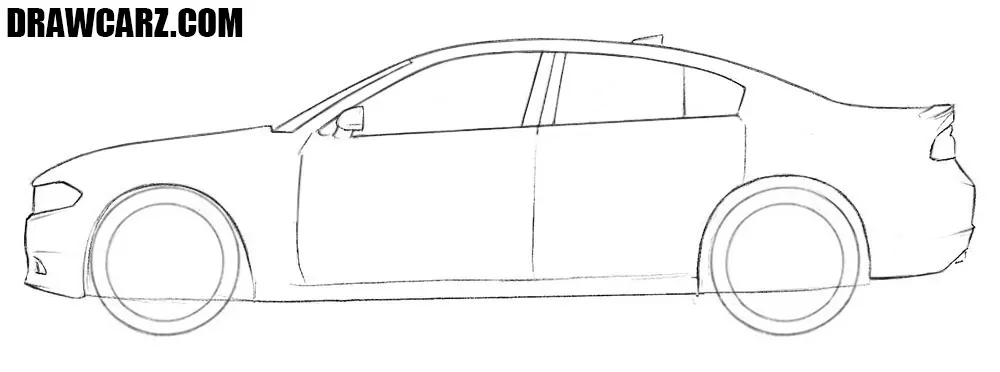
Step 7 – Trace the door cuts with handles
Darken the door contours and add handles beneath the side windows. You may include subtle creases or beltlines. Chargers from different eras vary: older ones are plain and flat, while newer ones have strong sculptural surfaces.
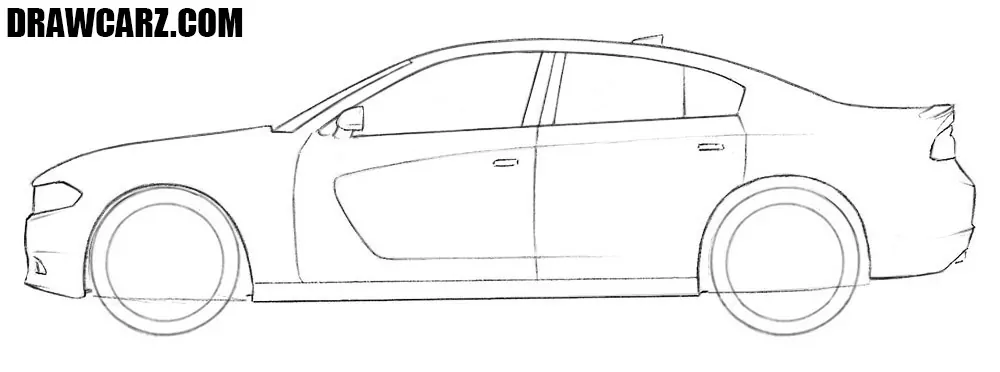
Step 8 – Draw the rims of your Dodge Charger
Work on the wheel design. Start with the central hub and extend spokes evenly outward. On the Charger, the rims often appear wide with aggressive spoke layouts. You can adjust the shape and amount of spokes. Also, you can add bolts for a more realistic look.
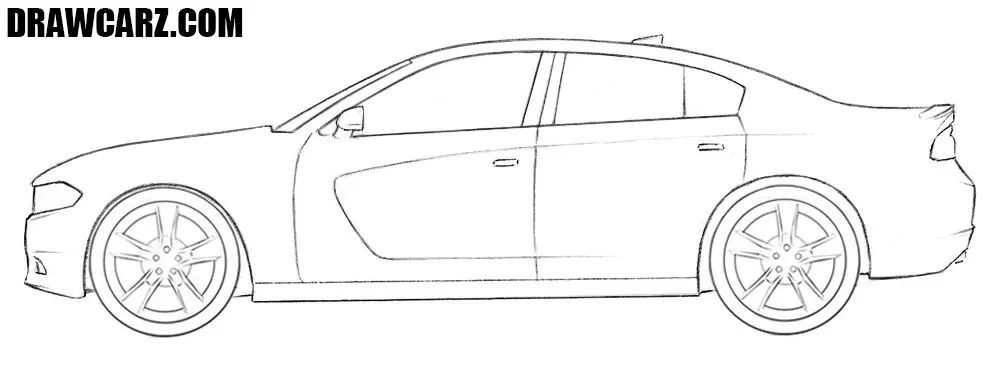
Step 9 – Apply dense shading for your muscle car
Erase unnecessary sketch lines and apply shading with hatch strokes. Darken the areas indicated on our illustration or color your muscle car for a more unique look. With highlights left on the windows, the illustration becomes three-dimensional and complete your Dodge Charger sketch.
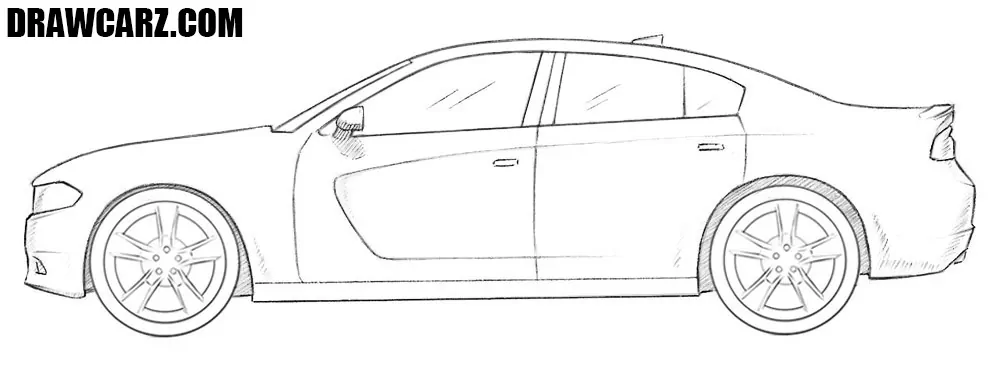
After practicing with the Dodge Charger, it’s useful to compare it with other well-known muscle cars. These models represent a different take on the same American tradition.
Below we’ve highlighted a few of the most iconic examples, such as the Challenger, the Mustang, and the Camaro. With these guides you can continue your practice and better understand the shared design language of muscle cars.
The Dodge Challenger is another classic from the same brand. In our Dodge Challenger drawing tutorial, we show how its basic shapes and details differ from the Charger, giving it a more traditional muscle car look.
Another important representative is the Ford Mustang. The Ford Mustang drawing guide shows how to sketch this legendary vehicle and explains how its design helped establish the archetype of American muscle cars, with a recognizable silhouette that has remained relevant through generations.
The Chevrolet Camaro is also worth studying. In our Chevrolet Camaro drawing lesson, we look at how this model interprets the same muscle car formula in its own way.
If you wanted to learn how to sketch a realistic Dodge Charger, now you can do it. If you still encounter any difficulties, be sure to write to us about it. Also, write to us about what cars you still want to be able to create on paper.


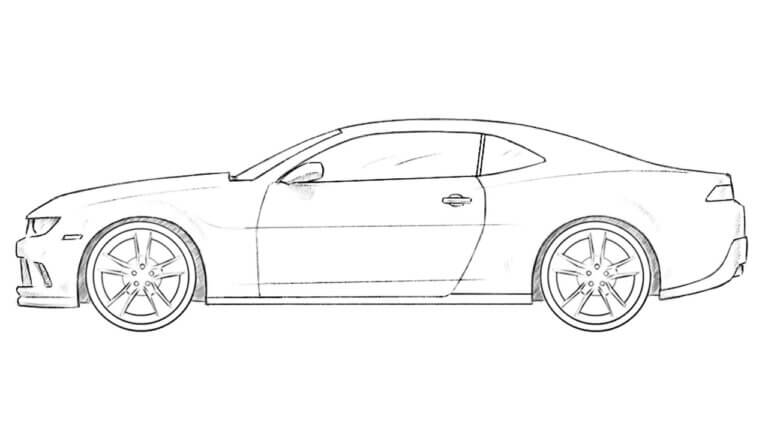
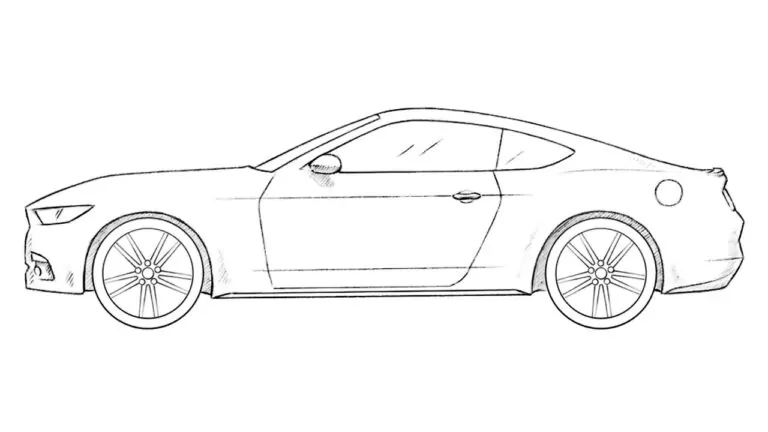
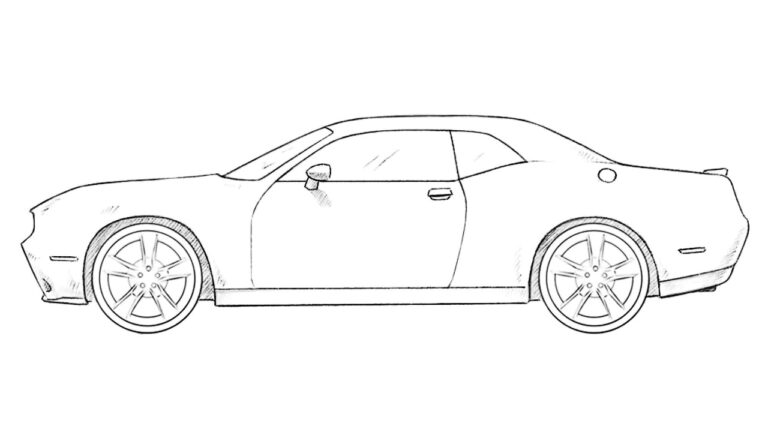
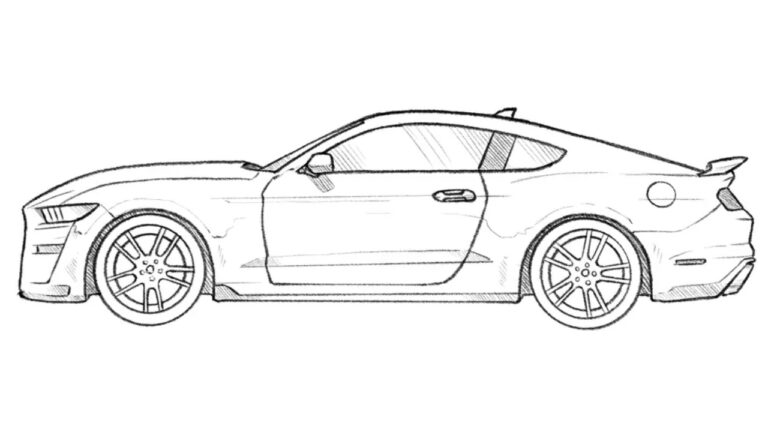
hey guys love your work i am a huge fan of gas monkey garage i think you should feature these cars on your page thx
yoyooyyoo
bad
Thanks! Gas Monkey Garage cars would be cool to feature, good idea.
this is so COOOOOL
Glad you think it’s so cool!
ik rigth
Right, that’s how it goes with these steps.
Nice
Thanks, glad you liked this guide.
Hi. Great drawing tutorial.
Appreciate the kind words, always nice to hear our tutorials are helpful.
hi
Hi there, welcome to the tutorial.
You should draw a lamborghini sto for sport cars it’s fast
Good suggestion, Lamborghini STO is a great choice for a fast sports car tutorial.